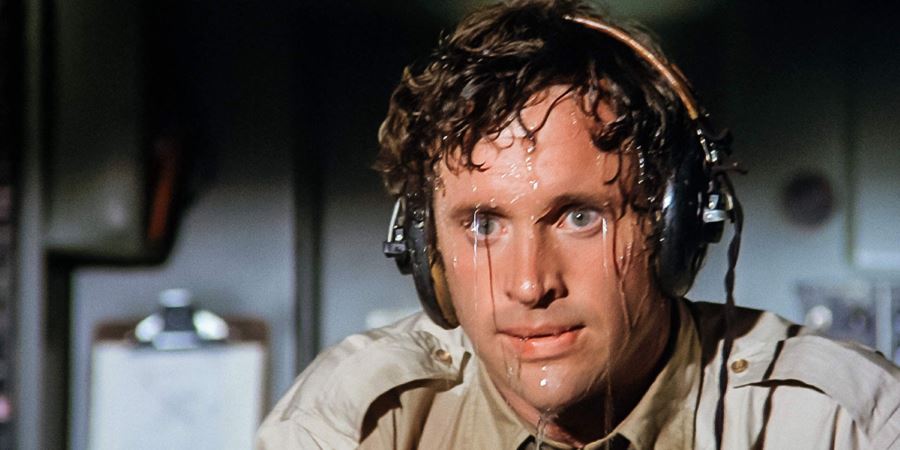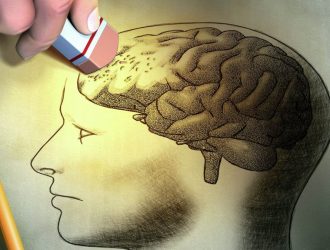
Sweat isn’t a bad thing. So, why you should actually sweat more often? Did you realize that we spend over 75 billion dollars a year just to block sweat? For some reason, people don’t like to sweat. They don’t like the smell, and above all, don’t let anyone know that you actually sweat.
Sweat explained
Sweat itself doesn’t have a bad odor. It’s the bacteria that ferment certain things in the sweat that produce various types of odor. And a lot of times, when you’re using certain deodorants that plug up your pores, that sweat material gets blocked, it ferments more, and it can create a worse odor.
But there are two types of sweat glands. You have certain glands that produce an oil that is connected with a hair follicle, like underneath your armpit. And then you have other sweat glands that produce more of a salty fluid. But the overall purpose of sweat is your body’s strategy to control temperature, to dump heat, so you can keep moving and you can prevent heat stroke. It’s a survival strategy. And we can lose a lot of sweat.
In fact, we can lose between two and four liters of sweat every single hour. That’s an incredible amount of fluid coming out of our bodies. And when people are frightened or under major stress, when they’re sweating, it has a completely different odor.
If we look at the consistency of sweat and what’s in it, you have 0.9 grams per liter of sodium, only 0.2 grams per liter of potassium, 0.015 grams per liter of calcium, 0.013 grams per liter of magnesium (learn more about Unexpected Benefits of Magnesium), and a lot of other things (chloride, fatty acids, glucose, proteins). Sweat is really the same chemistry as the fluid that you have in your blood, minus the red blood cells. The fluid is in between your cells and the capillaries. So it’s a salty fluid. In your sweat glands, you even recycle some of these minerals as well.
An average person consumes about 3 300 milligrams of sodium every single day. And they consume about 2600 milligrams of potassium every day. We can compare this to what our bodies really need. Let’s just take sodium, for example. An average person actually needs less than what they’re getting. They need about 2300 milligrams. And they’re getting 3 300 milligrams. So they’re basically getting an extra 1000 milligrams of sodium every single day. When we talk about potassium, people need 4700, which is a lot more than what they actually get. An average person is in the negative with potassium by 2100 milligrams.
And only five percent of the population even gets 4 700 milligrams of potassium every single day. So the ratios are just way more important than these individual numbers. For example, if you’re not getting enough potassium, just make sure you don’t consume a lot of sodium. But if you consume more sodium, make sure that you’re getting a lot more potassium (at least, twice as much, or even three times as much potassium as sodium).
So, is sweating good for you? Yes, sweating is good for you! Find out why you should sweat more often.
Benefits of sweating
There are some benefits of sweating.
- You’re going to balance out your sodium to potassium ratios because an average person is heavy on the sodium and the low on the potassium. So when they’re sweating, they’re going to be losing much more sodium than potassium. By sweating, you can correct this imbalance and support a healthy cardiovascular system.
- You have the ability to expel toxins from your blood.
- You’re going to sleep better. People notice, when they sweat, especially when they exercise, that they sleep better that night. Exercise can help them sleep, but just the fact that you’re balancing these ratios right here is going to help the cardiovascular system; you’ll breathe better, you’ll have better circulation, and you will sleep better. Learn more about the best natural remedy for sleep.
- Increased energy. This really depends, because if you get more sleep, you’re going to have more energy. If you have an imbalance of sodium and potassium and you balance that out, you’re going to have more energy. But if you’re losing too many electrolytes, especially sodium, you’re going to feel fatigued. So when you sweat and you don’t replace the sodium, you may have more fatigue. However, this all depends on the quantity of exercise and if you’re replacing your electrolytes at the same time.
- It can actually increase your circulation and prevent overheating. As you’re sweating, you’re pushing out certain fluids. It’s very good for your skin; it’s good for circulation because we’re pushing things out and hopefully you’re taking things back in. Versus inactivity, no sweating, when your fluids are not circulating through the body, they’re stagnant, and you’re going to get less circulation.
- Sweating has a calming effect. It means that it creates a certain stress that causes your body to adapt and actually become stronger, especially for the neurons in your brain. And there’s one study that shows that sweating actually helps to maintain your brain cells.
- The assistance of your adrenal glands. Your adrenal glands have a huge control over sodium and potassium. And if you have an imbalance and you sweat, you can put these two minerals back into balance and support the adrenals. Of course, this is also a conditional, because if you’re losing too much sodium or even too much potassium, that can negatively affect your adrenals. But usually the fact is that when someone sweats, they’re usually exercising, and exercise does support the adrenals as long as you recover.





I had adult acne all my life and the dermatologist tried everything to stop it. I kept telling my GP that I don’t sweat enough and she said I was fine. I bought a portable pop-up FIR sauna and sat in it 3-4x/week for 20 min each time and in 9 months my acne was almost gone. Sweating is very important for our bodies and I continue to sit in my sauna even on the hot humid summer days.